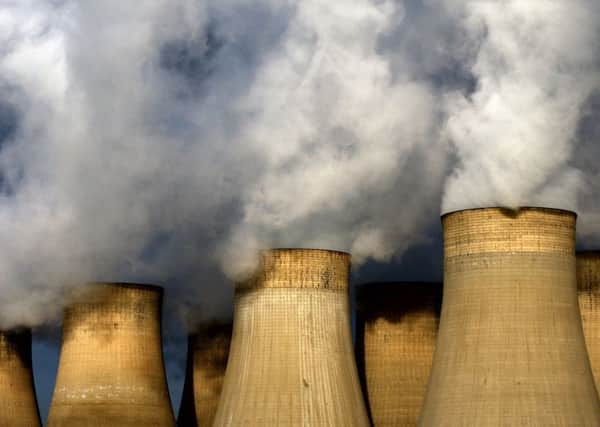£356m subsidy for fossil fuels


The multimillion-pound support is part of £5.3bn (6.3bn euro) given to the coal industry a year by 10 European countries which account for 84 per cent of the continent’s carbon dioxide emissions, the Overseas Development Institute (ODI) said.
In a new report, the international development think tank rated the UK poor on transparency and on phasing out subsidies for coal mining and coal-fired power.
Advertisement
Hide AdAdvertisement
Hide AdThe British government has said it will not undertake a fossil fuel subsidy peer review under a process by the G20 leading nations, because it denies the country provides any fossil fuel subsidies, the report said.
But the UK mining sector has various tax benefits and there is reduced VAT on fuel, including electricity from coal, the report said.
There are also subsidies paid to coal-fired power stations under schemes to ensure secure electricity supplies, which undermines the carbon price put in to push up the cost of highly-polluting power.
These schemes, the capacity market and supplementary balancing reserve, benefit coal plants to the tune of almost £200 million a year, the report estimates.
Advertisement
Hide AdAdvertisement
Hide AdThe Government has committed to phasing out polluting coal-fired power plants by 2025, and Britain had its first full day without coal generating any electricity since the 19th century in April.
Elsewhere Germany accounted for more than £1.7bn in subsidies (2bn euro), while across the 10 countries, just 14 per cent of money identified as subsidies was being paid to support a transition for communities and workers away from fossil fuels.
Report author Shelagh Whitley, head of the climate and energy programme at ODI, said: “European countries need to phase out coal if they are to meet the Paris climate agreement targets, fight air pollution and support a change to low-carbon energy systems.
“However as our research shows, governments are continuing to provide lifelines to coal by handing over new subsidies without which the coal industry would not be economically viable.
Advertisement
Hide AdAdvertisement
Hide Ad“Governments in Europe must stick to their promise to shift to low-carbon and efficient energy systems and focus any remaining subsidies on supporting workers and communities to move away from fossil fuels.”
Last month The Yorkshire Post reported that the industrial revolution had turned full circle, as for the first time in 135 years Britain kept its lights on without coal to stoke the boiler.
As the clock struck midnight on April 21, the country completed its first full day fuelled only by greener alternatives.
The last coal-free day was in 1882, before the opening of the world’s first centralised public coal-fired generator at Holborn Viaduct in London.
Advertisement
Hide AdAdvertisement
Hide AdThe National Grid’s electricity control room tweeted: “It looks likely that today will be the first ever working day in Britain without coal since the industrial revolution.”
Three decades ago, Yorkshire had 56 collieries. The last two, Kellingley, near Pontefract, and Hatfield, in Doncaster, closed in 2015.
The coal-fired Ferrybridge C power station, in Kellingley’s shadow, followed a few months later.